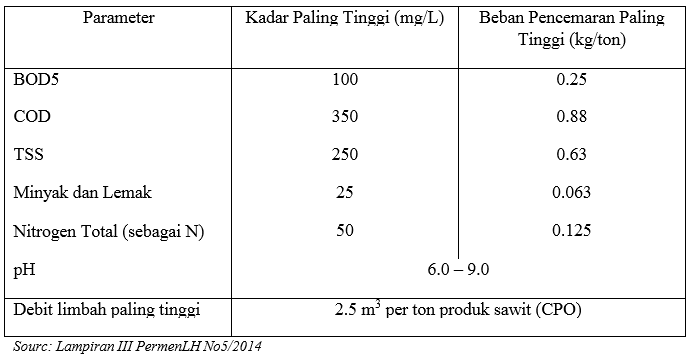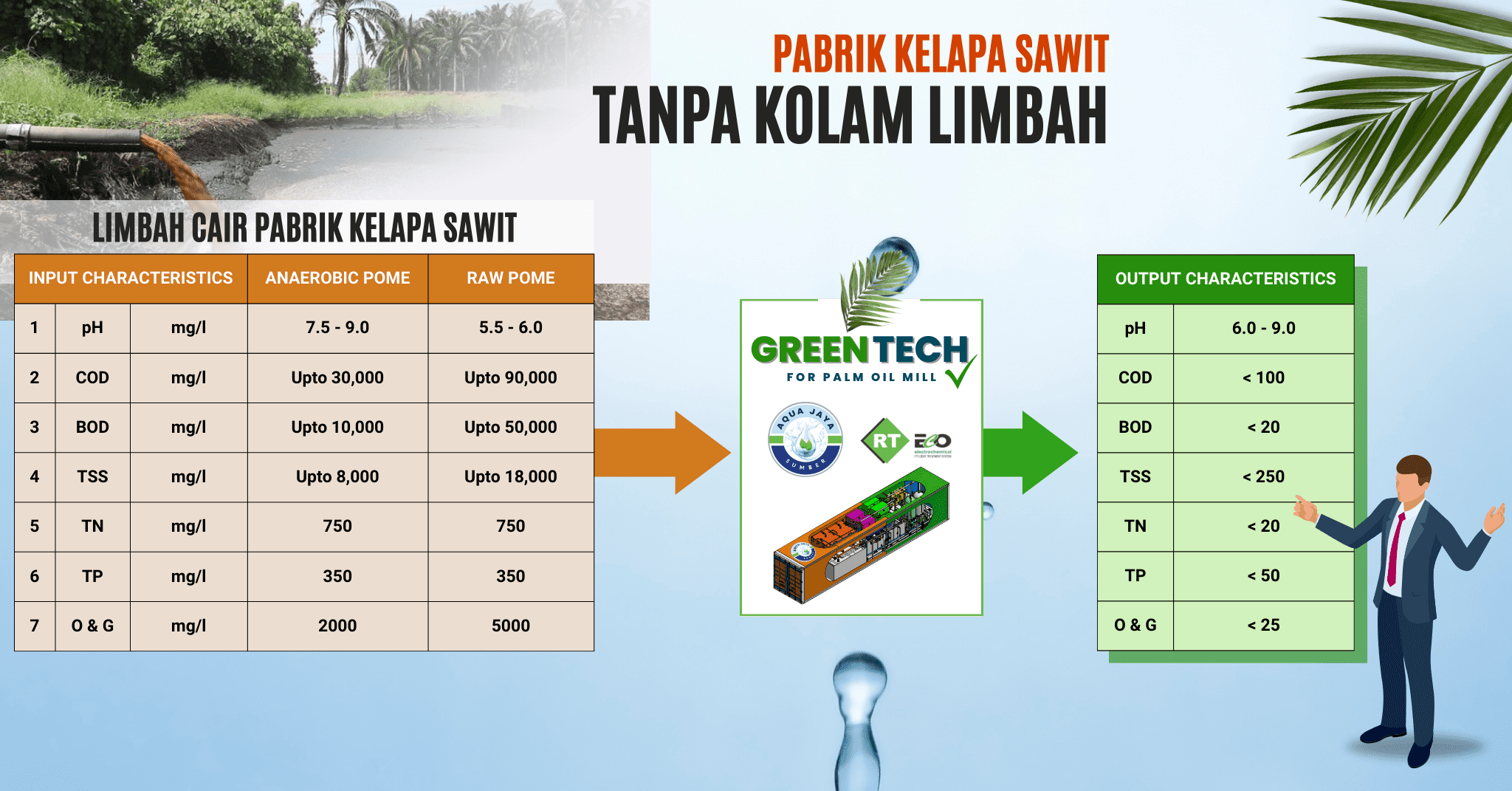A major waste treatment challenge for the Palm Oil Industry in Indonesia
The Palm Oil Industry in Indonesia contributes greatly to the country`s economic activities by producing various goods and services.
However, like every production activity, the Palm Oil Industry also produces negative impacts in the form of waste as a by-product. Waste, also known as pollutants, is an integral part of industries, both large and small. The impact of the waste generated can disrupt the balance of the environment.
One form of waste generated by the Palm Oil Industry is liquid waste, which is the liquid residue from the production process or industrial activities.
Before discharging liquid waste into water bodies, the Palm Oil Industry must ensure that the discharged liquid waste is safe for the environment.
For this reason, effluent sampling must be carried out at the outlet point of the effluent treatment, i.e. before the effluent is discharged into water bodies.
The samples are then tested in an accredited laboratory, and the test results are compared with the quality standards in accordance with the applicable environmental regulations.
Wastewater treatment in industry is regulated by the Regulation of the Minister of Environment of the Republic of Indonesia Number 5 Year 2014 on wastewater quality standards.
This regulation sets wastewater quality standards for various types of industries, based on the capabilities of wastewater treatment technology commonly used or based on the environmental
capacity in the industrial area to obtain the highest concentration or pollution load. These quality standards are different for each industry and parameter measured.

While industry has the advantage of treating wastewater separately from domestic sewage or stormwater, there are several challenges in treating wastewater in industry that must be considered. Among them are knowledge of the material balance of raw materials and water used in the production process, fluctuations in effluent water quality and effluent discharge, variations in the types of wastewater generated with high pollutant levels for some parameters, and the properties of wastewater that do not change after use, such as cooling water.

Therefore, the selection of the right waste water treatment product is key in maintaining sustainability and environmental sustainability. Advanced and environmentally friendly treatment technologies can help reduce the negative impact of liquid waste generated by the palm oil industry, so that we can move towards a more sustainable industrial era. With the awareness of the importance of choosing the right waste treatment product, the palm oil industry can play an active role in preserving the environment and improving the quality of life for the surrounding community and future generations.

